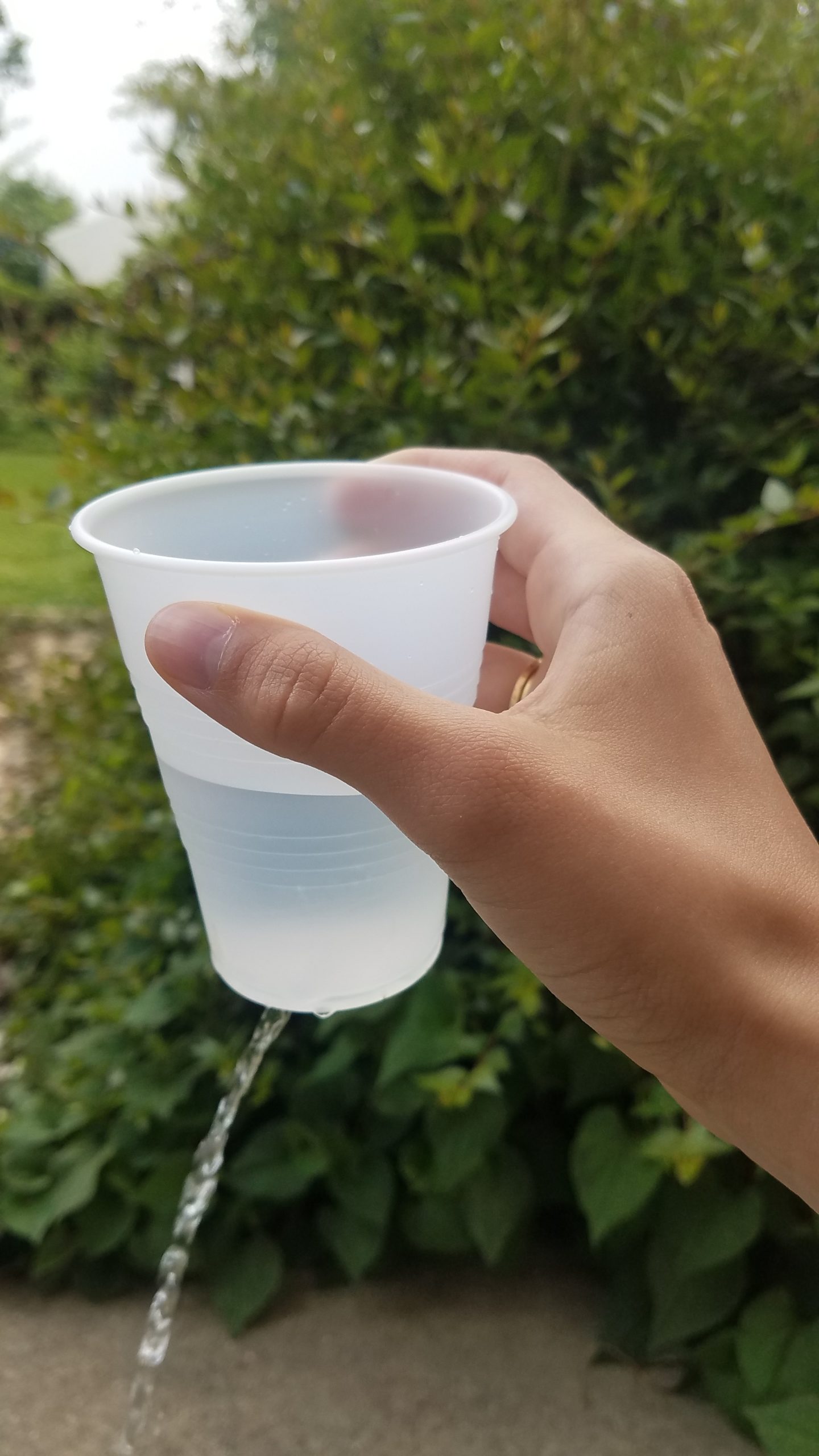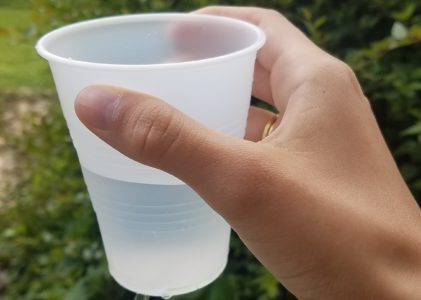It’s a beautiful day for a picnic. It’s a little hot but there is a refreshing breeze blowing, and all of your friends are there, as well as some people you look forward to getting to know. You aren’t exactly a chef so you’re on water duty, making sure everyone stays hydrated. You notice your one friend Adrienne keeps on coming back over and over again to get water. You look more closely this time as she walks away and spot a steady stream of water coming from the bottom of her cup. Does she not notice? You wonder, Who walks around with a hole in their cup without getting a new one? After only getting a few more sips in, she circles back to you to get some more water. You try to give her the benefit of the doubt saying,
“Adrienne, why don’t you get a new cup? Were you so engaged in your conversation that you didn’t notice your cup has sprung a leak?” She looks at you sheepishly,
“Yeah it’s not the best cup there is, but it works fine, I’m really thirsty, would you please pour me some more water?” You look at your friend like she’s grown a second head.
“Adrienne, just get a new cup, Jeff brought plenty.”
“No, I don’t want to bother him, and besides, some people have way worse cups, and I don’t want to take one from someone else. It’s really ok, if you don’t want to help I’ll grab something else to drink.”
Somewhat shocked you watch Adrienne repeat the same awkward types of interactions with other people, getting a little bit of lemonade to come back right away, and eventually getting questioned, but resisting getting a new cup. She tries with soda, juice, and iced tea as well but some people notice the peculiar nature of her cup before they even give her something to quench her thirst. Some refuse her, others give in out of awkwardness, but you can sense the weird tension it creates. She again comes up to you, but you’ve watched this odd ordeal for too long and it’s beginning to bother you how much liquid and time is being wasted.
“Fill ‘er up please” Adrienne says, somewhat awkwardly, but somewhat with a laugh. “I guess I’m kind of a mess,” she more overtly jokes. In fact some of the people around you laugh at the self-deprecating humor.
“Girl, seriously I’m not pouring you some water until you get a new cup.” You say as her expression drops.
“Come on, it’s hot and I’m parched, why won’t you guys give me anything to drink?! You guys are all getting along fine so why can’t you spare me some? I know I use up a little more water but I need it!” she exclaims. You pause to try and refrain from saying something rude out of your frustration and bewilderment at your friend’s illogical behavior, but she has already walked away to sulk.
In popular culture we often hear or talk about how you need a full cup before you try pouring into anyone else’s. Although I think this can be a useful way to think about things, it’s simplicity certainly leaves something to be desired. No matter how full you are, no matter how hard you try to keep yourself full, if you keep on pouring into a structurally unsound cup, you are always going to be left dry. I came across this twist on the cup analogy in David J. Lieberman’s Setting Boundaries with Difficult People, and I felt inspired to expand on his idea. Luckily as the culture shifts, mental health matters get easier and easier to discuss and deal with, but often people still don’t feel comfortable enough refusing to pour into someone who really needs more help than they can provide.
If someone came to a lay-person with a broken leg, we wouldn’t allow them for one second to believe they didn’t need a medical professional. Part of this is some lingering stigma, some of this is merely a fact that mental health can itself be a barrier to treatment in a way that an injured body might not be. It may require more people skills and care to tell someone that only a mental health professional can help them at a certain point, but I wish to believe that’s not too difficult of a world to inch towards.

